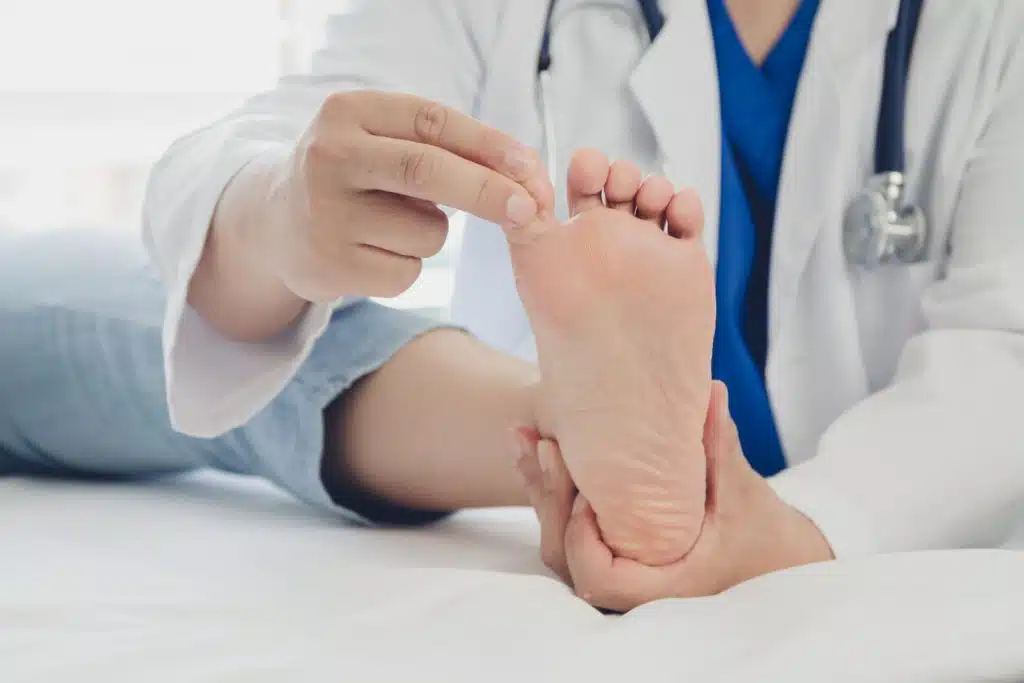
Foot health is often overlooked, yet it plays a vital role in our everyday lives. Whether you are a marathon runner, a busy parent, or someone who enjoys leisurely walks, the health of your feet affects your overall quality of life. A foot doctor is a specialist who can help you maintain or improve your foot health.
Knowing the right questions to ask during your visit can make a big difference in understanding and managing any foot-related issues. Here are the essential questions to ask your foot doctor, ensuring a productive and informative appointment.
1. What is the cause of my current foot problem?
Gaining clarity on the underlying cause is the first step towards effective treatment. Whether it is a structural issue, injury, or a condition like diabetes affecting your feet, understanding the cause helps target the problem accurately.
2. Are my foot issues related to my lifestyle or activities?
Foot problems can often be linked to the lifestyle of an individual, including the type of shoes worn, the nature of daily activities, or even exercise habits. This question helps identify whether any modifications are needed to alleviate the issue.
3. What treatment options are available for my condition?
It is important to know all the available treatment paths, from conservative methods like orthotics and physical therapy to more invasive options like surgery. This will help you make an informed choice about your care.
4. What are the potential side effects or risks of the recommended treatment?
Every treatment has its pros and cons. Understanding the potential risks or side effects, such as recovery time or the need for follow-up procedures, is important before making a decision.
5. How can I expect my condition to progress over time, with or without treatment?
Knowing the prognosis with and without treatment will help you gauge the seriousness of the condition and the importance of following through with the recommended care plan.
6. Are there any specific exercises or lifestyle changes that can help with my condition?
Often, foot health can be improved or maintained through specific exercises, stretches, or lifestyle adjustments. This question can lead to advice on preventative care and long-term foot health.
7. How can I best manage the pain and discomfort associated with my foot condition?
Pain management is a key part of treatment for many foot conditions. Your doctor may recommend medications, ice, heat, or other strategies to help manage your symptoms effectively.
8. Are there any signs or symptoms that indicate my condition is worsening?
Understanding the warning signs of a deteriorating condition can help you seek timely intervention and prevent complications.
9. How often should I schedule follow-up appointments?
Regular follow-ups can be necessary, especially if you are undergoing treatment or managing a chronic condition. Knowing the recommended frequency helps in planning and ensures continuous monitoring.
10. Can you recommend any resources for additional information or support?
Access to educational materials, support groups, or online resources can provide additional support and information, helping you to better understand and manage your foot health.
Asking these questions during your podiatry appointment will not only provide you with essential information about your foot health but will also foster a more collaborative and informed approach to your treatment and care.
When to Visit Your Foot Doctor
Here are key situations and signs that indicate it is time to see your doctor:
- Persistent Pain or Discomfort: If you experience ongoing pain in your feet or ankles that does not improve with rest or over-the-counter remedies.
- Changes in the Appearance of Your Feet: If you see any noticeable changes such as swelling, discoloration, or deformity in the feet or toenails.
- Difficulty Walking or Performing Daily Activities: If you find it challenging to walk, stand, or engage in your usual activities due to foot pain or discomfort.
- Injury to the Foot or Ankle: If you have any injury, such as a sprain, fracture, or severe bruise, even if it seems minor.
- Diabetic Foot Care: Individuals with diabetes should regularly see a foot doctor for check-ups.
- Heel Pain: Heel pain can have various causes, such as plantar fasciitis or heel spurs.
- Recurring Skin or Nail Problems: If you experience issues like athlete’s foot, fungal nail infections, or ingrown toenails.
- Bunions or Hammertoes: These structural foot problems often worsen over time. Early treatment can help manage symptoms and slow their progression.
- Flat Feet or High Arches: If you have noticeably flat feet or high arches, especially if they cause pain or discomfort.
- Numbness, Tingling, or Loss of Sensation: These symptoms can indicate nerve issues and should be evaluated promptly.
The Best Foot Doctor in Columbia, MD
If you need the best orthopedic surgeon in Baltimore, you can trust the Orthopaedic Associates of Central Maryland. Our board-certified podiatrists, Dr. Marc Lipton and Dr. Hayden Hoffler provide excellent diabetic foot and wound care. With proper diabetic foot management, we aim to prevent complications such as ulcers and amputation. Our podiatrists perform a thorough foot exam at every visit and guide our patients on how to care for their feet.
For more information or to schedule a consultation with one of our providers, call us today at (410) 644-1880 or use our online appointment request form. You may also call (443) 478-4449 if you need physical therapy in Baltimore.
We look forward to serving you!

